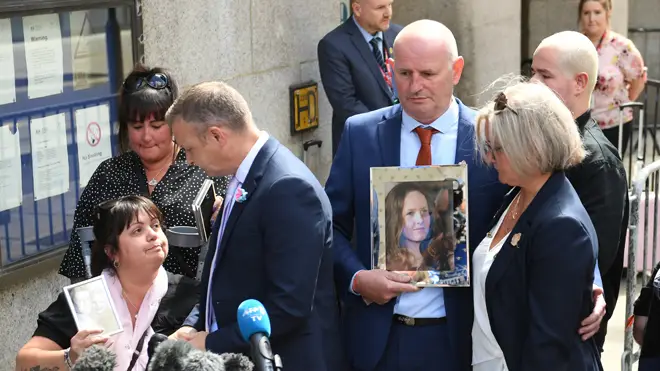
Iain Dale 7pm - 10pm
7 September 2020, 05:39 | Updated: 7 September 2020, 13:29

Manchester Arena Inquiry chairman: We are not looking for scapegoats
The public inquiry into the Manchester Arena bombing opens today, three years after the attack which claimed 22 lives.
Families of the 22 people murdered in the attack are expected to gather in the city later on Monday.
Sir John Saunders, a retired High Court judge, will chair the Manchester Arena Inquiry, to investigate events before, during and after the attack at the end of an Ariana Grande concert on the evening of May 22, 2017.
Suicide-bomber Salman Abedi set off a shrapnel-filled rucksack bomb as he was surrounded by a throng of elated youngsters leaving the concert.
The names of the 22 innocent bystanders killed in the attack will be read out, followed by a minute silence as the inquiry formally begins.

Abedi was known to the security services, and a senior MI5 officer, known only as witness J, is expected to give evidence to the inquiry later this year.
The bomber's brother, Hashem Abedi, now 23, was last month jailed for life with a minimum 55 years before parole, for his part in the deadly bomb plot, which also left hundreds injured.
The inquiry is being held with unprecedented arrangements to ensure social distancing is observed by the families of the deceased, their lawyers and others representing public bodies, witnesses and the media.
The main hearings will take place in a room specially converted from two courtrooms within the Manchester and Salford Magistrates' Court building in the centre of Manchester.
A small number of relatives of those killed are expected to attend the hearing room, with a conference centre nearby accommodating others, along with survivors of the attack.
Sir John Saunders will begin proceedings by formally opening the inquiry, before Paul Greaney QC, counsel to the inquiry, reads the names of the 22 victims, followed by the minute silence.
Mr Greaney will then, over the following three days, set out the evidence to be heard and summarise the key issues to be considered during the inquiry, expected to run in to spring next year.
Background evidence and pen portraits, where families of those murdered speak about their loved ones, will begin on Thursday.
The inquiry is divided into 17 chapters to cover topics including the victims, the background and radicalisation of Salman Abedi, the response of the emergency services on the night, the planning of the attack and whether what the security services and police knew about Salman Abedi could have prevented the attack.
The chairman will make a report and recommendations once all the evidence is heard.
Some evidence, involving information judged to be potentially of use to terrorists, is subject to restriction orders, and those hearings will be closed to the public.
The most sensitive evidence is likely to be heard at closed hearings, with both press and public excluded because of the risk to national security.
A livestream of proceedings will be broadcast so members of the public can follow the hearings.
The livestream is on the inquiry's YouTube channel and via the inquiry website at www.manchesterarenainquiry.org.uk.